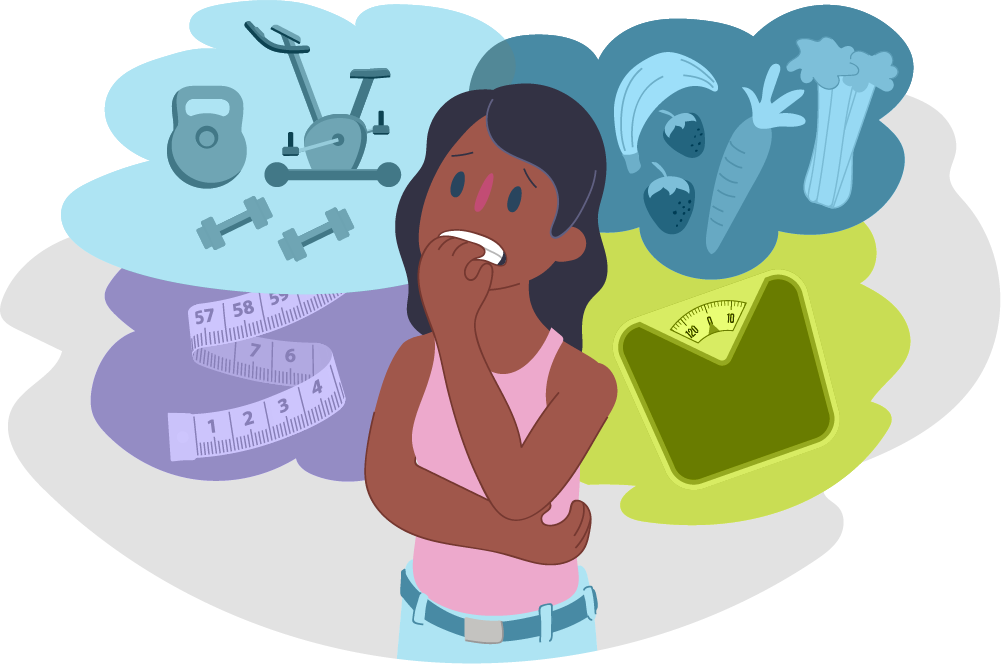Eating Disorder Awareness Week | A YAC Student Blog
Abigail Goldberg is a Senior at Dublin Coffman High School
Eating disorders are complex mental health conditions that can impair an individual's health by affecting their eating behaviors. There are multiple types of eating disorders such as binge eating disorder, bulimia nervosa, and anorexia nervosa. It is common for people with eating disorders to conceal their unhealthy behaviors, and it can be hard to recognize an eating disorder. Common signs of an eating disorder include being uncomfortable eating around others, frequent dieting, extreme concern with body size and shape, and constant checking in the mirror for perceived flaws in appearance.
Many different factors can contribute to developing an eating disorder; however, many people blame the media. Undoubtedly, it can be impossible to escape the endless cycle of advertisements shown in commercials, newspapers, social media, and billboards. Unfortunately, the concepts within many of these ads have damaging effects on the audience. One concept often found in advertising is the obsession with thinness. For example, many diet plans and beauty advertisements use models that have unrealistic body types. Since most models are very slim, viewers who do not have this body type begin to see this figure as something they should strive for. This thought process can be dangerous for viewers by causing many girls to develop eating disorders in an attempt to obtain the impossible. Additionally, editors use photoshop and digital editing to alter models in advertisements by thinning legs and waists. These actions continue to push an unrealistic body type upon women to this day.
Genetic factors can also play a role in increasing a person's risk of developing an eating disorder. Although genes that cause eating disorders have not been discovered, many individuals inherit traits such as anxiety, perfectionism, and fear that have been linked to the development of an eating disorder. In general, variations in some genes contribute to traits that can increase or decrease an individual's risk for developing an eating disorder.
If you notice warning signs of an eating disorder in a family member or friend, it is essential to start a conversation. It is necessary to avoid commenting on the individual's appearance or weight. Instead, listen without judgment and explain that you will support them in any way that they need. Lastly, the most crucial action you can take for a person with an eating disorder is to encourage treatment.


